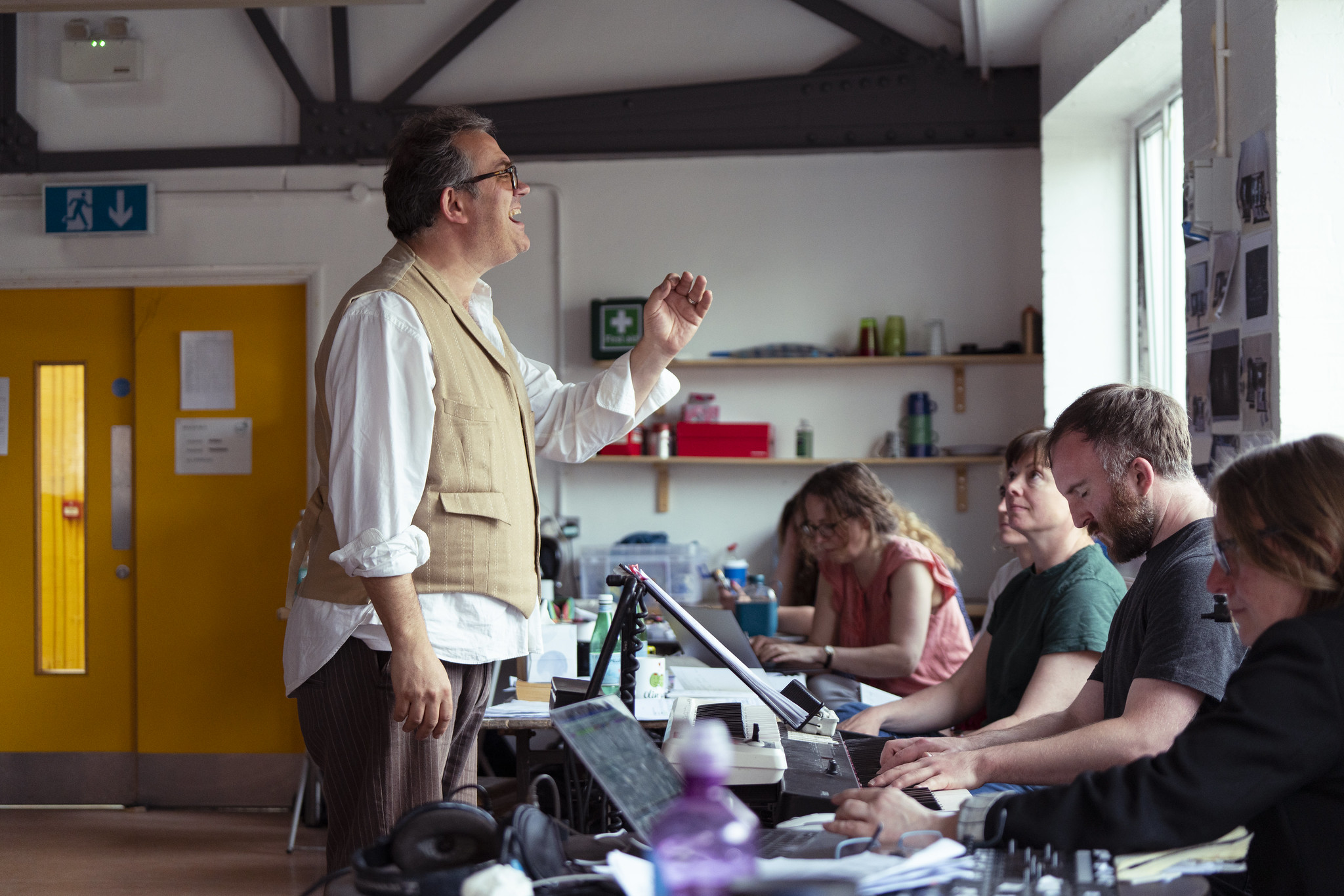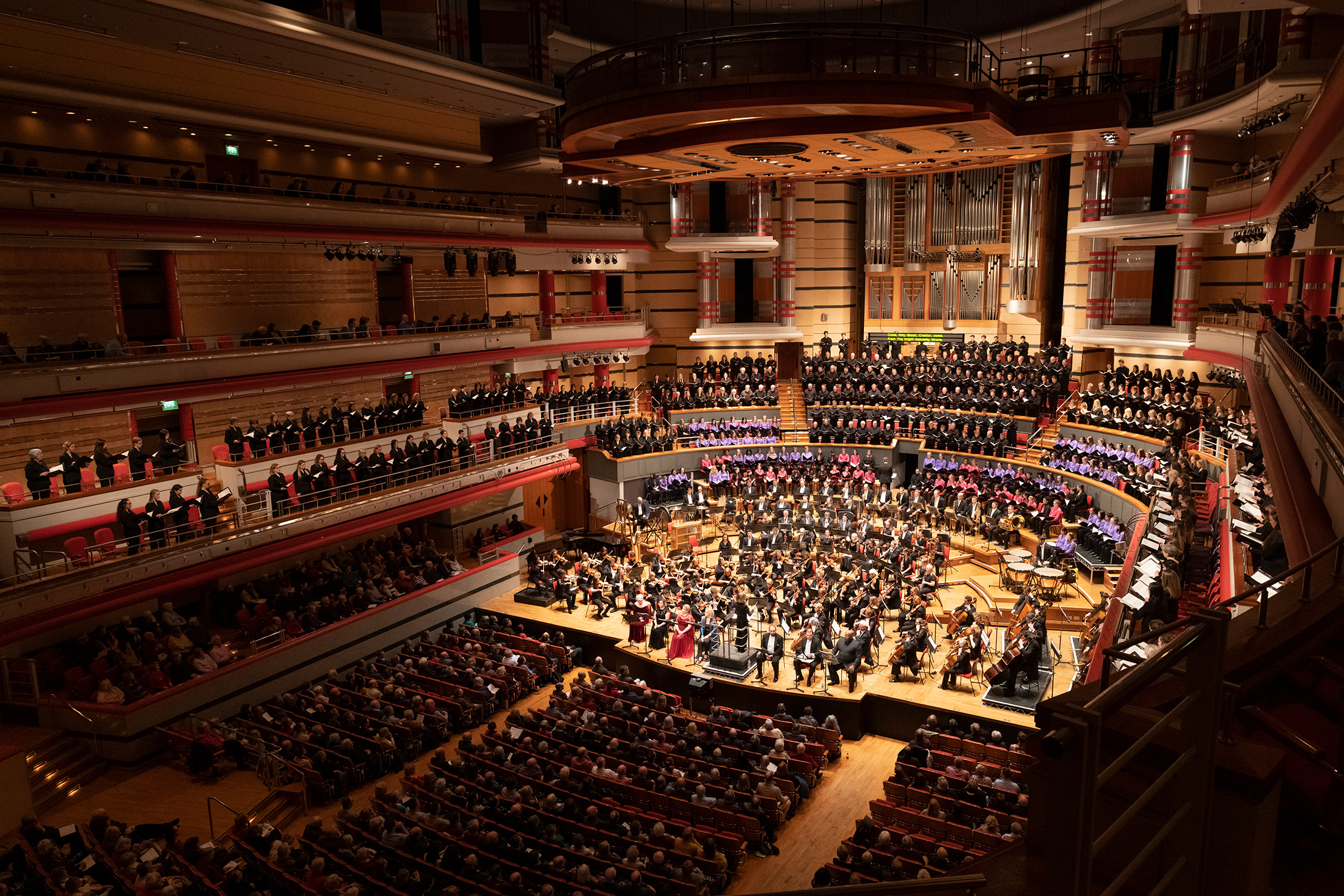Sarah Angliss’ new opera ‘Giant’ will open this year’s Aldeburgh Festival on Friday 9 June. Tickets for both performances including Karim Sulayman, Gweneth Ann Rand, and Heloise Werner in the Britten Studio, Snape are already sold out as final rehearsals get underway.
‘Giant’ is inspired by the story of Charles Byrne the ‘Irish Giant’ whose suspected growth defect brought him fame and fortune when he left Londonderry at the age of 21 and toured Scotland and Britain.
Ending up in London, Byrne had attracted considerable attention in terms of money on account of his considerable height of 8 foot four inches. The nascent scientific community were interested too, in particular Scottish army surgeon and anatomist John Hunter, who went to great lengths to acquire Byrne’s body after death.
It is believed that John Hunter bribed a member of the funeral party to acquire the corpse of Charles Byrne despite the deceased’s expressed wish to be buried at sea. Hunter instead arranged for the body to be snatched on its way to a sea burial. Years later, the skeleton went on display at the Hunterian Society (later the Hunterian Museum). It’s only in recent years that moves have been made to give Byrne a respectful burial. An oil painting of Byrne now replaces his skeleton.
This move in 2018 coincided with a series of workshops at Snape in Suffolk in which composer Sarah Angliss and poet Ross Sutherland developed ‘Giant’, premiering this week at the Aldeburgh Festival.
Rehearsals got underway in a London rehearsal venue just a few steps away from the river in Bermondsey. Inside ‘London Bubble’ the cast brought the work to life. Along the length of one side of the room, director Sarah Faie, repititeur Ian Shaw, stage manager Rebecca Maltby sit behind a line of tables, observing proceedings, making suggestions and busily scribbling notes. At the other end furthest away from me composer Sarah Angliss is negotiating cables, devices and sundry percussion instruments. In the performance area Karim Sulayman already tall, is donning high-heeled boots to elevate him above the rest of the company. Cast members exchange mischievous smiles with one another.

Although progress in the short amount of time I’m able to spend in rehearsals seems slow, it still feels like a treat to be here. One particular sequence is rehearsed a few times, minor adjustments suggested to performers. Just sufficient for me to know that when I hear it in performance I’ll be transported back to this moment.
We end up breaking for early lunch giving Sarah an opportunity to sort out some logistics. Once she’s disentangled herself from bits of technology, we sit down to chat.
“I’m completely outside the classical music scene,” she starts off. “I’ve spent years electronic and experimental music scene in Cafe OTO and places like that. So coming back to notated work is quite the departure for me.
Sarah explains how her formative musical education came from the county music service. Among other young musicians in Bedfordshire, her focus was piano and recorder. It was while attending Trinity College Saturday School that she was introduced to the idea of composition. “I took to it like a duck to water.
“I was always composing. Everybody assumed that I would go to music college. But it was around that time I discovered the BBC Radiophonic Workshop. I heard plays on the radio. One in particular – Ray Bradbury’s There Will Come Soft Rains with sound by Malcolm Clarke. This was exactly what I was interested in – working with tapes, records, and manipulating sound. All of that kind of stuff.”

Angliss eventually studied at the University of Salford. “I was the only woman on the course. It was a hard-core engineering course. I just knew that I wanted to understand what a Fourier transform was, and what spectralism was. So I studied electroacoustics. I learned so much that stood me in good stead for now.”
Sarah talks with passion when we meet. A raw kind of energy drives what she says too. Even listening back to the interview on my phone an image comes to mind of an intrepid explorer, someone searching out the sounds with childlike curiosity, determined even.

“I absolutely understood what I wanted to do. And in the breaks in my engineering degree, I went off to Dartington, to do some of the composition sessions. It was there I met Robert Saxton – he completely got what I was doing. He understood the sound world I was going for. He recommended that I sought out City University and I called them out of the blue saying I’ve been composing since I was a kid, one of these, you know, kiddie awards and things, and that I wanted to study electroacoustics, and they just didn’t understand me at all. They were asking who had I been studying with? I explained well no-one because I’ve been in a laboratory studying acoustics. They didn’t let me through the door. So I sort of went into the wilderness, drifted out of composition, for 15 years. In the end, I just started to work full time as a performing musician, performing my own work, and then gradually gradually bringing in the notated stuff again, as well as the electronics. I’m 56 and writing my first big piece.”
What that been like?
“Scary. I’ve been doing my own thing for years with no heed for what’s fashionable in opera at the moment – just like a marsupial as a kind of evolutionary offshoot. I’ve been evolving my own style for years and years and years. But now I’ve got to put my money where my mouth is. All I can do is delight myself, I think. I’ve got a sticker underneath my monitor at home and it says “What can I do in this scene to delight myself?”
We talk about the language Sarah brings to Giant. “It’s harmonically pretty simple,” she explains. “The complexity is in the sonics. The way that I layer the sounds and the way that I do the spectral stuff – you know, where one instrument is playing things that spectrally relate to another. The choice of sounds and the way that I’m using electronics to sort of pull up sounds and sort of tease them apart and reverse them and things. In that way it’s very sonically complex, but harmonically simple. Everything you hear is either a live sound or live sound that’s been sort of pulled apart and manipulated. A lot of times the voices you’ll hear being pulled like licorice. I take sound and slow them maybe 64 times so you hear it as sinewy sound.”
Angliss is resolute, determined and fearless in her creativity. Her rebelliousness is appealing. Why get the view of someone following convention? The person doing their own thing is far more interesting.
“There’s another version of this opera on the floor of my place where I work,” she explains, “located somewhere in that sort of Precambrian layer underneath all the papers. It’s the first stab at this opera. I was getting all that pitch class sets and the rest of it. It would have got me got a nice big tick in an undergraduate thing at ‘The Academy’, but it wasn’t what I wanted to write. It was a personality free zone. I ended up thinking, this didn’t make my heart sing. I realised that to have line in music was really important. The musical line is your level of description. If you’re thinking in notes rather than sound, then your complexity has to come from the level of description of what’s on the page. But because I’m thinking in sound, my level of description is more about waveforms. So those dots on the page can be quite simple.”
As ever, hearing a creative talk adds to the sense of anticipation about what I’m about to hear. From an industry perspective it’s also a fearless move on the part of Aldeburgh – engaging a creative to work on a new challenge who has followed an unconventional path. The creative process surfaces a relatively unheard of story that contains many potent themes, relevant to present-day discourse. ‘Giant’ honours individuals from the past, highlighting a time when things weren’t universally understood, and finally making good on dubious actions of the past. It also highlights how the passage of time brings about a shift in perspectives. What was acceptable then is wholly unpalatable now. How do we as individuals and society respond to that best?
‘Giant’ Cast
Karim Sulayman Charles Byrne
Jonathan Gunthorpe John Hunter
Gweneth Ann Rand Rooker
Héloïse Werner Madame DuVal/Curator
Melanie Pappenheim Sister Mary/Curator
Steven Beard Howison
Sarah Angliss’ ‘Giant’ opens the Aldeburgh Festival 2023, in two sold-out performances at the Britten Studio in Snape on Friday 9 and Saturday 10 June 2023.









